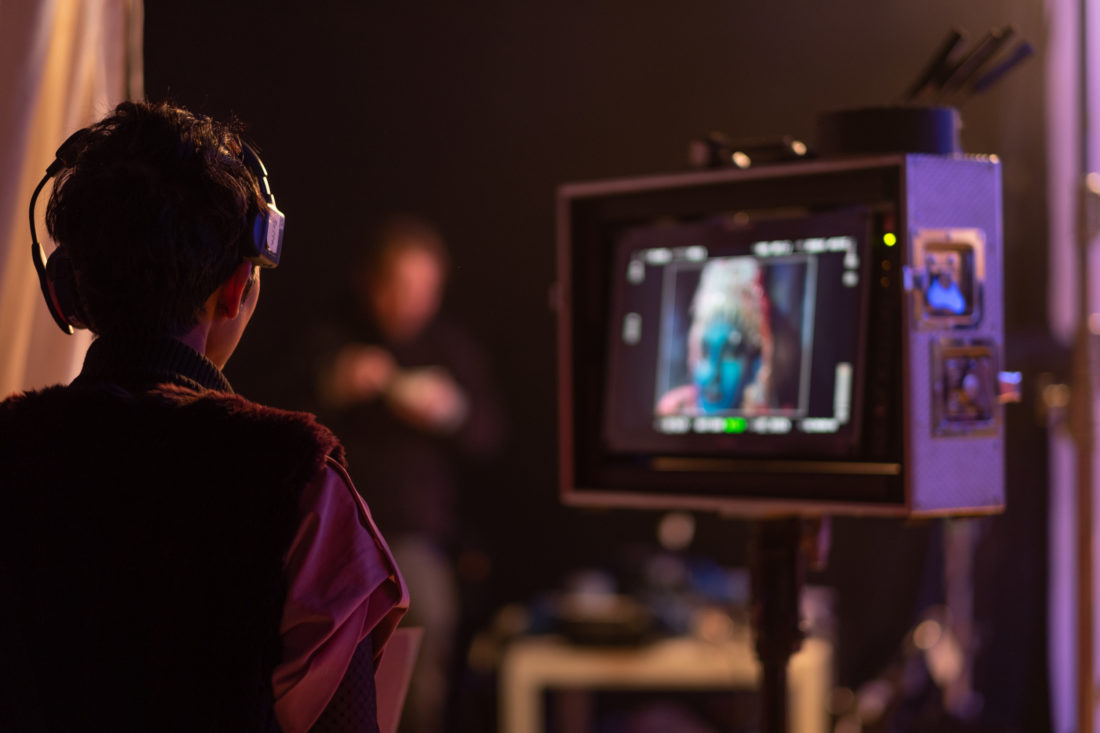
Image courtesy Aaron Cupples.
Aaron Cupples is an Australian composer, record producer and mix engineer based in London. Cupples builds compositions using bespoke instruments constructed in his studio using unconventional materials and techniques. He recently worked with artist Michelle Williams Gamaker on the soundtrack for Thieves, a film which is on display as part of the exhibition Our Mountains Are Painted On Glass at the SLG.
We sat down with Cupples to find out more about his work, and the experience of collaborating with Michelle Williams Gamaker.
First of all, please tell us a little bit about yourself. How did you get into composing for film? What is your favourite part of the job?
I grew up in rural southeastern Australia on a small farm in the country and I spent a lot of time as a kid messing around in the sheds, which were full of old junk left behind from previous owners. I’d make contraptions, some of them musical, and it got my mind really comfortable with building and experimenting with various materials. My studio is now in Tottenham, and I still approach it like a shed in which to experiment and build instruments. My background as a musician has mostly been playing guitar in bands, but I’ve dedicated the majority of my time to the studio side of record making – recording, producing, mixing, and mastering records. I didn’t compose for screen until I was approached to score a film called Island of the Hungry Ghosts by Gabrielle Brady in 2017.
My favourite part of the job is collaborating with other artists and bringing my particular skills to a project. It’s such a privilege to work with rich visuals and stories, and it can allow for a much more unconventional approach to music that otherwise might not get an audience on its own. There is a tremendous amount of trust from a director that you will hit the right note, so to speak, and when it goes well that collaboration is so precious and rewarding.
You composed the music for Michelle Williams Gamaker’s film Thieves. How did this collaboration come about? Have you worked with Michelle before? Tell us a little bit about the music in the film.
I’ve worked with Michelle before on The Bang Straws, but there is much more music in Thieves. Michelle’s work is steeped in film history and draws heavily on the so-called ‘Golden Era’ of Hollywood. This era was characterized by everything being big, and the music was typically provided by an enormous Western symphony orchestra, colossal over-the-top scores, and music everywhere! Maximalist ideas and huge budgets to match.
Drawing on that without having the luxury of renting the LSO, you need to get creative with technology. This is technically my first fully orchestral score, but it’s entirely done within a computer using samples from the BBC Symphony Orchestra, which is a ‘virtual instrument’ which you play with a keyboard. Essentially, I have real-life recordings of every note on every instrument played by the real BBC Symphony Orchestra, and you can control various articulations and expression as well. It’s an incredibly powerful tool for composers, and the results can be highly realistic if you compose within its limitations.

Behind the scenes of Thieves with Michelle Williams Gamaker.
What’s the starting point for you, when it comes to making music for a film?
Conversations are essential and the most important part of the process for me. I’m really trying to get inside the director’s head and bring their visions to life. I spend a long time trying to really feel into that vision and be creatively empathetic. In this case, I did read the script too, and we sat down together and talked about where the music might go and what feeling we’re aiming to communicate. With Thieves, I composed the entire film start-to-finish before I sent it to Michelle for any feedback, which is a bit of a risky move! But I guess that speaks to the trust between myself and Michelle.
Do you have any favourite film soundtracks? Are there any composers you admire?
Oh, so many. I can never pick as it will change from month to month. Recently, I’ve been really admiring György Ligeti, who I find to be much more ‘musical’ than many of the other avant-garde composers. And his work has been used a lot in film, most famously by Kubrick in 2001: A Space Odyssey, but I don’t believe he ever composed specifically for film. A more recent soundtrack I keep coming back to is the score for Arrival by Johann Johannsson. It’s just so texturally rich and incredibly creative, and very non-orchestral. It helped me reimagine what a film score can be.
Tell us what you’re up to next! Are you working on anything now?
I’m just beginning work on Gabrielle Brady’s new feature film. Very exciting, and I can’t say much about it, but it should be out next year!
Visit Michelle Williams Gamaker: Our Mountains Are Painted On Glass, free at the South London Gallery until 18 June.